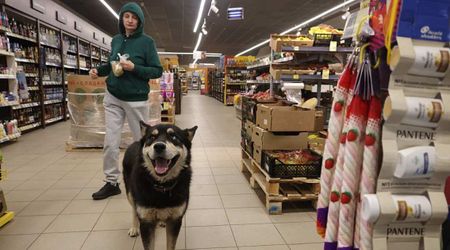Here's how Grocery Chains Have Been Profiting While Consumers Struggle With Food Prices

The COVID-19 pandemic brought about challenges that both consumers and retailers tackle, but the Federal Trade Commission (FTC) has raised concerns over the conduct of major supermarket chains in the United States during that time. According to a recent report by the FTC, the nation's largest grocery store chains significantly increased prices and boosted profits, even as consumers grappled with soaring food costs and supply chain disruptions.

The FTC's findings reveal a troubling trend wherein supermarkets capitalized on the pandemic-induced supply chain challenges to prioritize profit margins over consumer welfare. Despite facing heightened costs and logistic strains, major grocery chains saw a surge in profits, raising questions about their ethical responsibilities during times of crisis.
"As the pandemic illustrated, a major shock to the supply chain can have cascading effects on consumers, including the prices they pay for groceries,' explained FTC Chair Lina M. Khan.
The report also highlights how dominant supermarket firms leveraged rising costs as an opportunity to further hike prices, ultimately benefiting their bottom line at the expense of consumers and smaller competitors.

Key findings from the FTC report indicate a substantial increase in profits for major grocery chains, with revenues surpassing total costs by more than 6% in 2021. This profitability surge occurred amidst a backdrop of escalating food prices, with the consumer price index reflecting a 7.4% increase in food purchased for in-home consumption in 2021, followed by an 11% jump in 2022.
Over the period from January 2021 to the end of 2022, food prices soared by a staggering 19.4%.
The report singles out prominent players in the grocery industry, including Kroger, Walmart, and Amazon, along with large wholesalers, for their notable profit gains. "Some firms seem to have used rising costs as an opportunity to further hike prices to increase their profits, and profits remain elevated even as supply chain pressures have eased," the report says.
"Larger retailers and wholesalers with considerable leverage over their suppliers were able to take more aggressive action to protect themselves than were their smaller rivals."

Conversely, smaller chains and independent stores faced significant challenges in stocking shelves amid supply chain shortages, exacerbating disparities within the grocery sector.
The National Grocer Association, representing independent grocery stores, has called for legislative action to address the imbalance between independent retailers and corporate giants.
"The report supports the National Grocers Association’s longstanding assertion that consolidation and buyer power in the grocery sector lead to discriminatory practices against independent grocers, resulting in elevated prices and diminished choices for consumers," said Chris Jones, Chief Government Relations Officer and Counsel at NGA.

The release of the FTC report coincides with the federal government's scrutiny of a proposed merger between Kroger and Albertson's, two major supermarket chains. While the retail giants argue that the merger would enhance operational efficiency and benefit consumers through cost savings, the FTC warns against diminished competition leading to higher prices.
"Congressional intervention is essential to cultivate a fairer marketplace and address discriminatory practices that undermine consumer choice and competition," stated Jones.



















